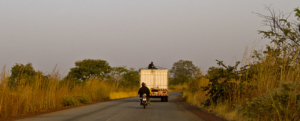Human Trafficking in Burkina Faso

Since gaining its independence from France in 1960, Burkina Faso has trodden down a rather tumultuous path. Through political instability in the 1960s and 70s to frequent terrorist attacks in the 2010s (with over 100 confirmed extremist attacks in the first quarter of 2019), Burkina Faso has been plagued by constant insecurity.
Currently, Burkina Faso has a 77 percent unemployment rate, despite the country’s slight growth in gross domestic product (GDP) over the last three years. These high unemployment rates, combined with the tumultuous economic and political fields, fuse to create poor living and working conditions, paving the way for human trafficking, which seemingly envelops every facet of life. From agriculture to mining, human trafficking in Burkina Faso is an issue that must be addressed.
Human Trafficking in Burkina Faso
The U.S. State Department’s Office to Monitor and Combat Trafficking Persons has established a four-tier ranking to describe a country’s status regarding the presence of and efforts to eradicate human trafficking. These ranks range from tier one, which details countries that comply with 2008’s Anti-Trafficking Laws, to tier two, tier two (watchlist), and tier three, which denotes countries that both do not comply with these laws and have made very little effort in meeting the standards set forth by these laws.
Burkina Faso is currently designated as a tier two nation. The U.S. Department of State emphasizes that the country, as a whole, has not met the standards set forth in 2008, though progress has been made in attempts to combat the issue of human trafficking through awareness campaigns and the steady increase of investigations in trafficking cases.
Burkina Faso is a current source, throughway and destination for human and sex trafficking. According to the Department of State’s 2019 report on human trafficking, the Burkinabe government has identified at least 851 victims of trafficking, and 2,844 potential victims of trafficking (including an estimated 1,350 homeless children, according to Burkina Faso’s Ministry of Women). However, these numbers are still estimates from incomplete data from somewhere between 30 and 45 of Burkina Faso’s 45 provinces.
Despite the lack of concrete data, the Burkinabe government has been able to identify more at-risk populations during 2018 than in previous years due to a stark rise in awareness and attentiveness. Currently, however, Burkina Faso’s government still lacks the resources to totally dismantle the seemingly institutionalized trade.
Current Governmental Measures
Burkina Faso’s government has made efforts to support those that it has identified as potential trafficking victims, as well as those who are subjected to harsh working conditions in general, by creating shelters to provide food, clothing and security. However, these shelters are rarely found outside of large metropolitan areas and are only able to house a certain number of victims at once. Furthermore, while this support is essential, it does not solve human trafficking in Burkina Faso.
Burkina Faso lacks the tools necessary to fully abolish human trafficking. While funding and staffing-power are certainly absent, lack of information and data appear to be the largest obstacles standing in the way of progress.
Missing police reports and insufficient data blur the complete picture of human trafficking in Burkina Faso. It has been reported that 61 traffickers were convicted in 2018, though it is unclear how significant these prosecutions have been in combatting the industry as a whole. Furthermore, the sentences doled out to these traffickers did not meet the standards of 2008’s anti-trafficking law, another contributing factor to Burkina Faso’s tier two status.
To prevent future human trafficking, the Ministry of Women and the Burkinabe government have assembled a committee designed to oversee the reduction and eventual eradication of human trafficking in Burkina Faso, though, this committee did not convene during the U.S. Department of State’s reporting period, and failed to produce any full-fledged intervention due to insufficient resources.
Furthermore, additional measures have been made to ensure that children are kept out of poor labor conditions. Even without sufficient funding, the Burkinabe government was able to free 20,000 child workers from mines between the years of 2015 and 2019.
Current Non-Governmental Measures
Collaborative work and interventions between Burkina Faso’s government and non-governmental organizations (NGOs) have yielded more promising results than those spearheaded solely by the government. While these coalitions still lack the resources for a more chronic, wide-spread response to human trafficking, they have disseminated information about human trafficking, hopefully preventing certain populations from getting enveloped in the trade. This increase in awareness of human trafficking among the general Burkinabe population helps facilitate change. The more citizens are mindful of human trafficking, the higher chance that more might be done about the issue.
NGOs have also played an important role in advocating for greater police training to combat and limit stigma around certain occupations, such as prostitution. UNAids recently partnered with REVS PLUS, a French NGO, to assist in the training of the police forces in Burkina Faso to help provide adequate medical care to sex workers.
Moving Forward
Burkina Faso has made strides in combatting and preventing human trafficking through heightened awareness. That said, there is still work to be done in the area. The creation of subcommittees to form a more “boots-on-the-ground” approach has gained enough ground to educate a significant portion of the population on the issue at hand (over 500,000, with about four percent of this number being children).
Advocacy and awareness are only the first steps to improving conditions for those at-risk for trafficking, those currently being trafficked and for all Burkinabe people in general. Action steps, such as the continuation of prosecuting and convicting human traffickers, appear to be trending upward, though improvement can be seen in this area. It is also important to address the other issues plaguing Burkina Faso; continuing economic growth and maintaining political stability will go a long way in abolishing human trafficking in Burkina Faso.
– Colin Petersdorf
Photo: Flickr
